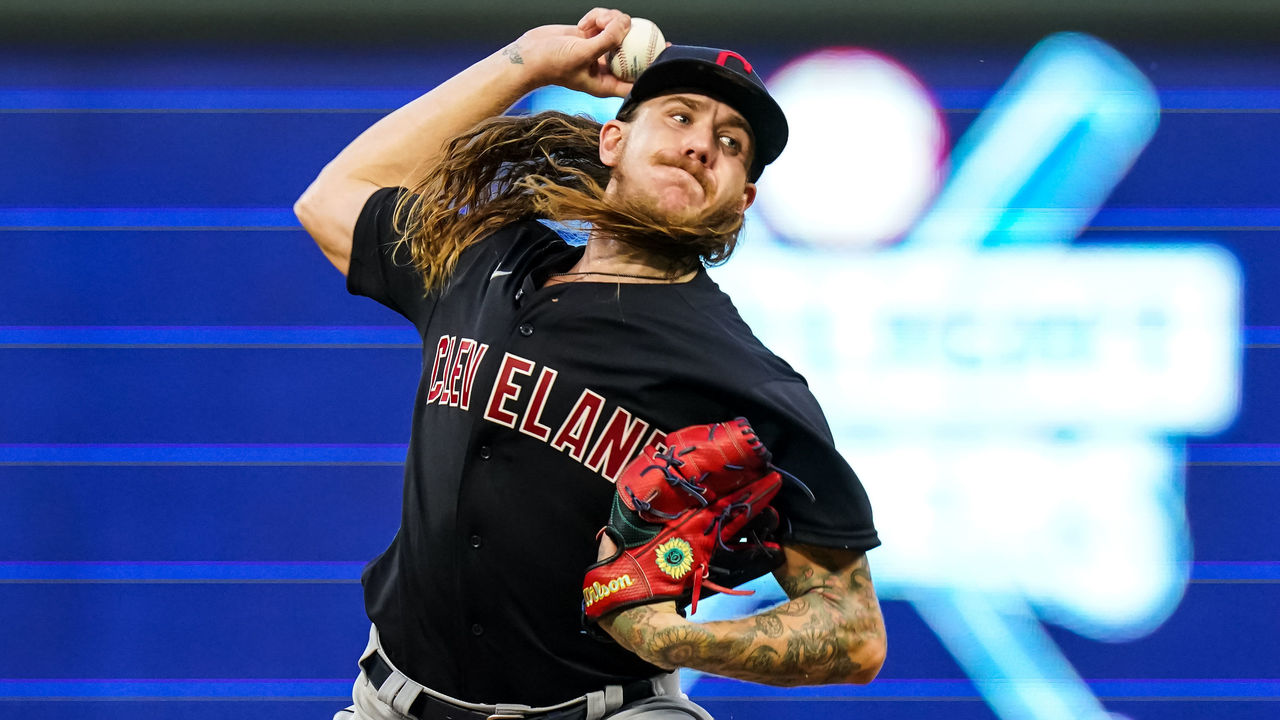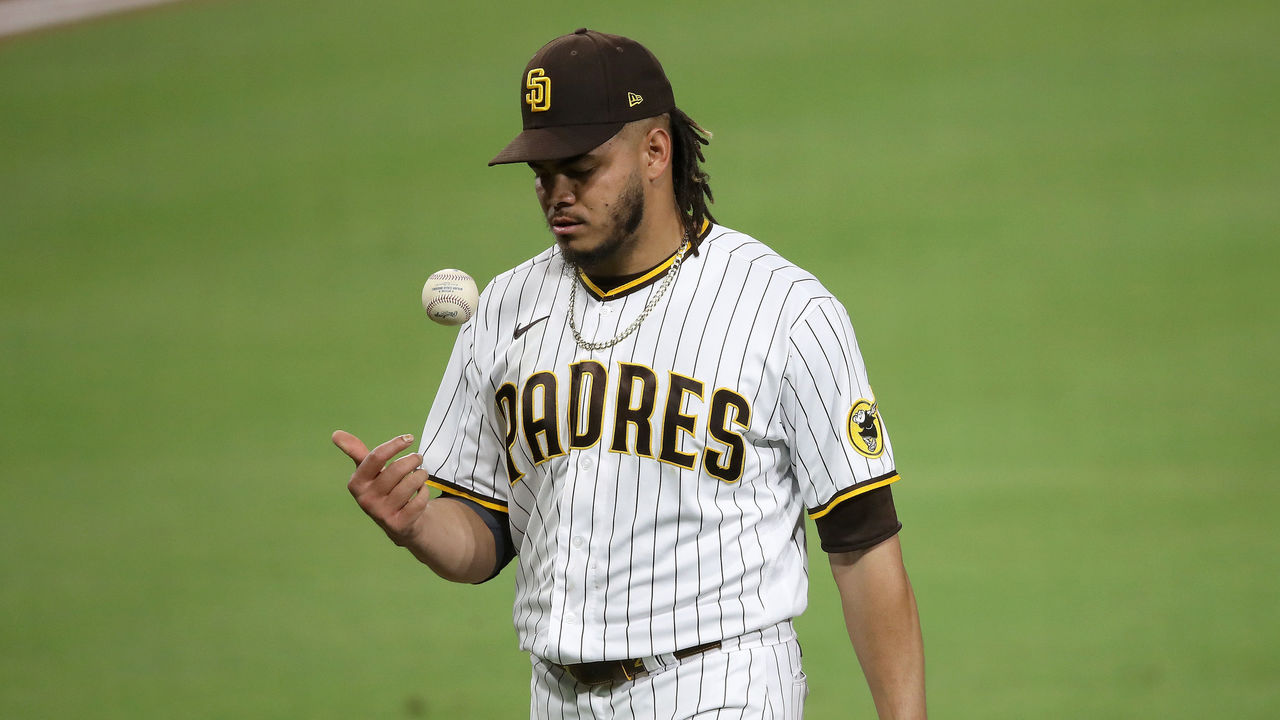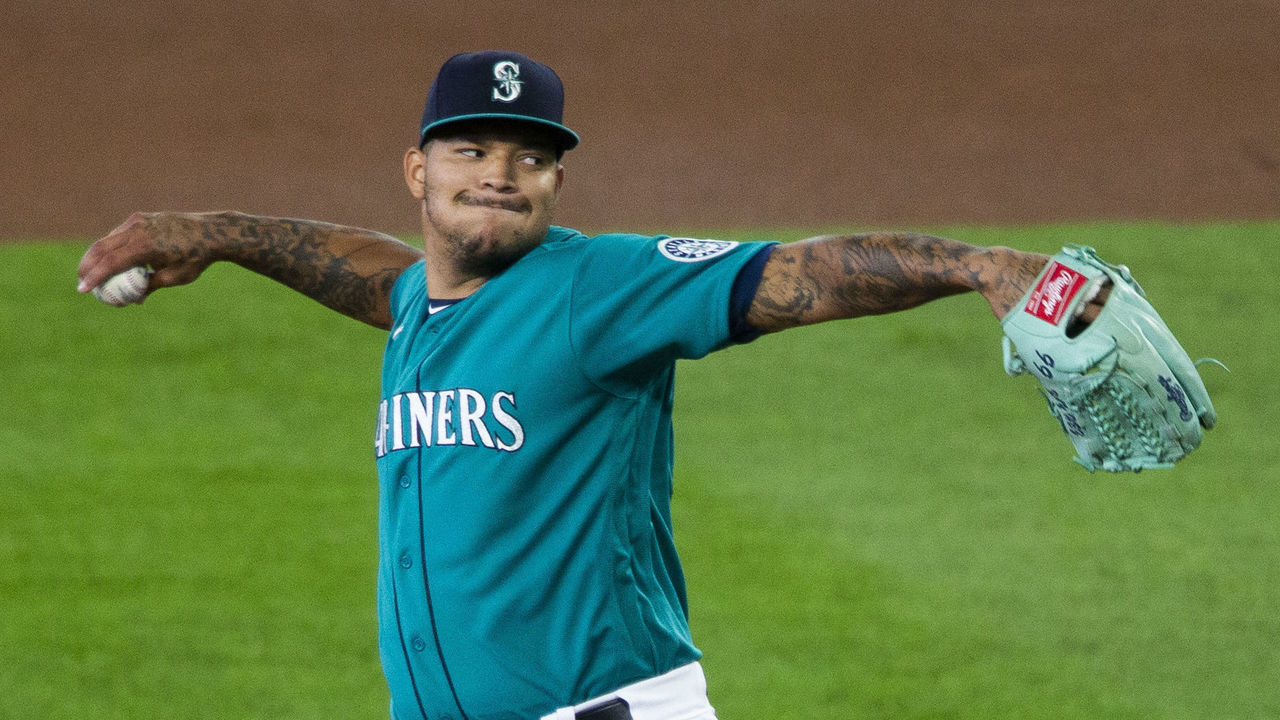Full Count: MLB's players come up short as sports world reckons with racial injustice
Full Count is theScore's weekly baseball notebook.
Tears streamed down Dominic Smith's face Wednesday night as he tried to articulate a too-familiar anguish.
It was a historic evening in sports, one that saw the Milwaukee Bucks refuse to take the court for a playoff game - an act of protest against systemic racism and police brutality in the wake of the shooting of Jacob Blake by police in Kenosha, Wisconsin - and prompt a wave of walkouts across the NBA, WNBA, MLS, and even Major League Baseball. Afterward, Smith, the New York Mets' first baseman, spoke about the distress of being Black in America.
"I think the most difficult part is to see that people still don't care," Smith said. "For this to continuously happen, it just shows the hate in people's heart. That just sucks, you know? Being a Black man in America is not easy."
Hours earlier, that indifference had been laid bare for Smith by his own teammates, none of whom kneeled with him during the playing of the U.S. national anthem before their game against the Miami Marlins at Citi Field. The contest proceeded as scheduled even after the Milwaukee Brewers and Cincinnati Reds opted against playing, making the decision in solidarity with the NBA protest.
Though three games were ultimately postponed - the Seattle Mariners and San Diego Padres jointly refused to play, as did the Los Angeles Dodgers and San Francisco Giants - that same indifference manifested elsewhere throughout the league Wednesday night. The Chicago Cubs, for instance, took the field without Jason Heyward, who opted not to play, while the Colorado Rockies played on without Matt Kemp, who also sat out.
The immediate message that emanated from baseball was a disjointed one. While unanimity was too ambitious a dream in an overwhelmingly white league - Black players account for only 7.8% of big-league roster spots - the collective response suggested that championing racial equality is important only insofar as non-Black players don't have to lay anything on the line.
Even on Thursday, after everyone had a chance to reflect on the historic actions of the previous day, players' reactions generally remained haphazard. Seven games were postponed, but another eight were played, including doubleheaders to make up for Wednesday's postponements. In contrast, the NHL, a league also criticized for its lack of diversity, paused its postseason when its players collectively chose not to play.
Moreover, some MLB teams that had games postponed Thursday would've played had their opponents not refused to take the field, including the Toronto Blue Jays and Arizona Diamondbacks. Mets owner Jeff Wilpon, meanwhile, suggested his team, whose players walked off the field following a 42-second moment of silence, instead express its outrage through a symbolic gesture that doesn't mess with the progress of the schedule. It was a damning example of how baseball owners and executives may view these protests.
Baseball's collective voice can be a powerful one, and the players themselves have tremendous power to influence and to amplify the simple, devastating truth that the state brutalizes Black people, in gross disproportion, with impunity. By championing this long-overdue reckoning for racial inequality with a united, unambiguous message, baseball - which belatedly celebrates the 73rd anniversary of Jackie Robinson's debut Friday - could position itself on the right side of history.
Instead, when the time came to do more than wear a T-shirt emblazoned with "Black Lives Matter" during batting practice, the message from many of baseball's players seemed to be one of indifference.
Clevinger staying put
Distressed assets are always hot commodities as the trade deadline nears, and perhaps that's why Mike Clevinger's name continues to pop up in rumors as Monday's deadline approaches. Clevinger, if you recall, ran afoul of his organization earlier this season by violating COVID-19 safety protocols, earning himself a three-week demotion to his club's alternate training site before rejoining the team Wednesday with a sharp six innings against the Minnesota Twins.
But if inquiring clubs think Clevinger's transgression will meaningfully undermine his trade value, they're sorely mistaken. The Cleveland Indians have a bevy of reasons to hang on to Clevinger, and they're not going to move him for anything less than an exorbitant return.

Cleveland is very much a World Series contender, and Clevinger, who owns a 3.18 ERA (145 ERA+) through four starts this season, is a key part of a rotation that has accrued more WAR than any other in baseball. (Admittedly, his peripheral numbers aren't great, but his improved velocity and whiff rate in Wednesday's return were encouraging.)
Clevinger also has two years of control remaining beyond 2020, and while it seemed like star shortstop Francisco Lindor's looming free agency could precipitate a teardown of sorts in Cleveland, the club's success this season suggests this core is capable of contending even once Lindor leaves. After all, Lindor hasn't really been an impact player this year - the four-time All-Star has epitomized league-average at the plate (100 OPS+) while amassing less WAR than Hanser Alberto and Kole Calhoun - and Cleveland is still dominant, boasting a better run differential than every team in the majors except the Dodgers, Twins, Oakland Athletics, and Chicago White Sox.
The Indians' competitive window should stay open for the foreseeable future thanks to the emergence of Shane Bieber and Aaron Civale - and Clevinger, the 14th-most valuable pitcher since the start of 2018. He's not going anywhere unless some team drastically overpays.
Behold, the first great Padres team
Never before in their 51-year history have the Padres been truly great. Throughout its woebegone existence, beginning in 1969, the team has been predominantly mediocre, often worse, and only occasionally good. Outside of their 1998 campaign, during which they set a franchise record with 98 victories and secured their second (and most recent) National League pennant, the Padres have never eclipsed 92 wins in a season.
San Diego is still chasing its first World Series title more than a half-century after the club's inception. Only once have the Padres made the postseason in consecutive years, and only once have they strung together more than two straight winning seasons. Never before have they had the makings of a potential dynasty.
Until now, that is.
For the first time ever, in the wake of a frustrating, non-linear rebuilding process, San Diego looks like an emergent powerhouse. Replete with young talent at the major-league level, from dynamo sophomore Fernando Tatis Jr. (21 years old) to four-time All-Star Manny Machado (27) to emergent stud Trent Grisham (23), the Padres are poised to get even better in the not-too-distant future. A singularly strong farm system - highlighted by left-hander MacKenzie Gore, shortstop CJ Abrams, and catcher Luis Campusano - has put the club on the precipice of an era of sustained greatness.

San Diego is already one of the best teams in the majors in 2020, and it looks primed to snap a 14-year playoff drought. And as weird as it may be watching the Padres actually compete, it's something we're all going to have to get used to.
Blue Jays in buy mode
The expanded, 16-team postseason has blurred the line separating the contenders from the rest of the league, making it considerably harder for front offices to arrive at a strategy (i.e. buy, sell, or hold) ahead of Monday's deadline. By acquiring right-hander Taijuan Walker from the Mariners on Thursday in exchange for a player to be named later, the Blue Jays - one of many teams straddling that line - indicated they have no intention of capitulating.

Walker, a former top prospect in the midst of a career renaissance after missing virtually all of 2018 and 2019 following Tommy John surgery, is by no means a difference-maker. In five starts with Seattle this season, the 28-year-old authored a 4.00 ERA with a 4.94 FIP, serving up a disconcerting number of home runs while proving vulnerable to left-handed hitters. Still, he's a salve for an injury-ravaged rotation currently without Matt Shoemaker, Trent Thornton, and Nate Pearson - absences that have worn out the bullpen - and the Blue Jays' decision to go out and get Walker suggests they'll approach Monday's deadline looking to add rather than subtract.
Teams don't acquire players on expiring contracts, like Walker, ahead of the trade deadline if they don't believe they can contend. Following a promising 15-14 start, and perhaps coupled with the anything-can-happen nature of this year's postseason, the Blue Jays are evidently confident they can. In any event, the addition of Walker is a bellwether of progress for an organization that was selling off Marcus Stroman and a coterie of other veterans for minor leaguers at this time last year.
Jonah Birenbaum is theScore's senior MLB writer. He steams a good ham. You can find him on Twitter @birenball.